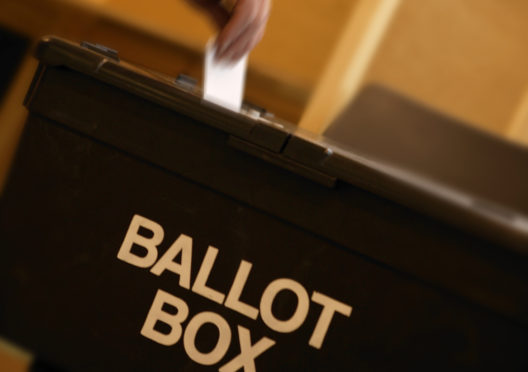
Prisoners and foreign nationals living in Scotland should have the right to vote, a Holyrood committee has recommended.
The Scottish Government has been urged to make changes to election laws “driven by principle and evidence”.
The Standards, Procedures and Public Appointments Committee wants to abolish an “unsustainable” ban on inmate voting and enable foreign residents to stand in elections.
Following scrutiny of a Bill seeking to extend the franchise in Scotland, a majority of MSPs on the committee backed Government plans to allow people from overseas to contest Scottish elections rather than just being able to vote.
MSPs acknowledged concerns foreign residents who are elected but do not have the right to remain permanently may have to stand down to return to their country of origin.
But they argued “the chances of this happening are slim” and pointed out any elected representative could have to stand down for a number of reasons.
The Scottish Elections (Franchise and Representation) Bill aims to give the right to vote to citizens of all countries who are legally resident in Scotland, extend candidacy rights and allow some prisoners the vote.
In their report supporting the principles of the Bill, MSPs call on the Government to ensure more eligible voters are registered and to consider whether the franchise should be extended to asylum seekers.
Committee convener Bill Kidd said: “Voting is about so much more than choosing our politicians.
“It is about feeling empowered and a part of a community.
“Having the opportunity to influence lawmakers and decision-takers is something that many of us take for granted and for the majority of the committee the aim to extend this right to foreign nationals is warmly welcomed.
“Our report today also asks the Government about what more it can do to ensure that all those who are eligible to vote can do so and feel empowered to make changes in their society.”
The Bill also seeks to extend the franchise to prisoners serving sentences of 12 months or fewer following a court ruling that a complete ban on prisoner voting breached the European Convention on Human Rights (ECHR).
However, the report argues the Government’s plan to grant prisoners jailed for 12 months or fewer the right to vote risks still being inconsistent with the European Court of Human Rights’ ruling due to the new presumption against prison sentences of less than a year, meaning very few convicts given short sentences are likely to serve time behind bars.
The report said: “The committee believes that the blanket ban on prisoner voting is unsustainable as it is at odds with European Convention on Human Rights.
“The committee would like to see the Scottish Government’s policy on prisoner voting driven by principle and evidence.”
Deputy convener Mark Ruskell MSP said: “There is clearly strong feeling on the issue of prisoner voting and the committee heard considerable evidence supporting the case that all prisoners should have the right to vote.
“It is also important that Scotland complies with the European Convention on Human Rights.
“The majority of the committee agreed that the franchise in Scotland should be extended to those prisoners serving sentences of 12 months or less.
“This can and should play an important part of the rehabilitation of offenders.”
Tory MSPs Jamie Halcro Johnston and Tom Mason were the two members of the seven-strong committee to reject the Bill’s principles.
A Scottish Government spokeswoman said: “By extending voting rights to foreign nationals from beyond the EU and Commonwealth, the Bill will help ensure foreign nationals resident in Scotland feel part of society and are empowered to become involved in changes that will affect them in their daily lives.
“We recognise the importance for everyone entitled to vote to ensure they are registered to do so in time for any forthcoming election.
“Scottish electoral registration officers are continuing to work hard to ensure all eligible voters will be able to exercise their rights.”

Enjoy the convenience of having The Sunday Post delivered as a digital ePaper straight to your smartphone, tablet or computer.
Subscribe for only £5.49 a month and enjoy all the benefits of the printed paper as a digital replica.
Subscribe